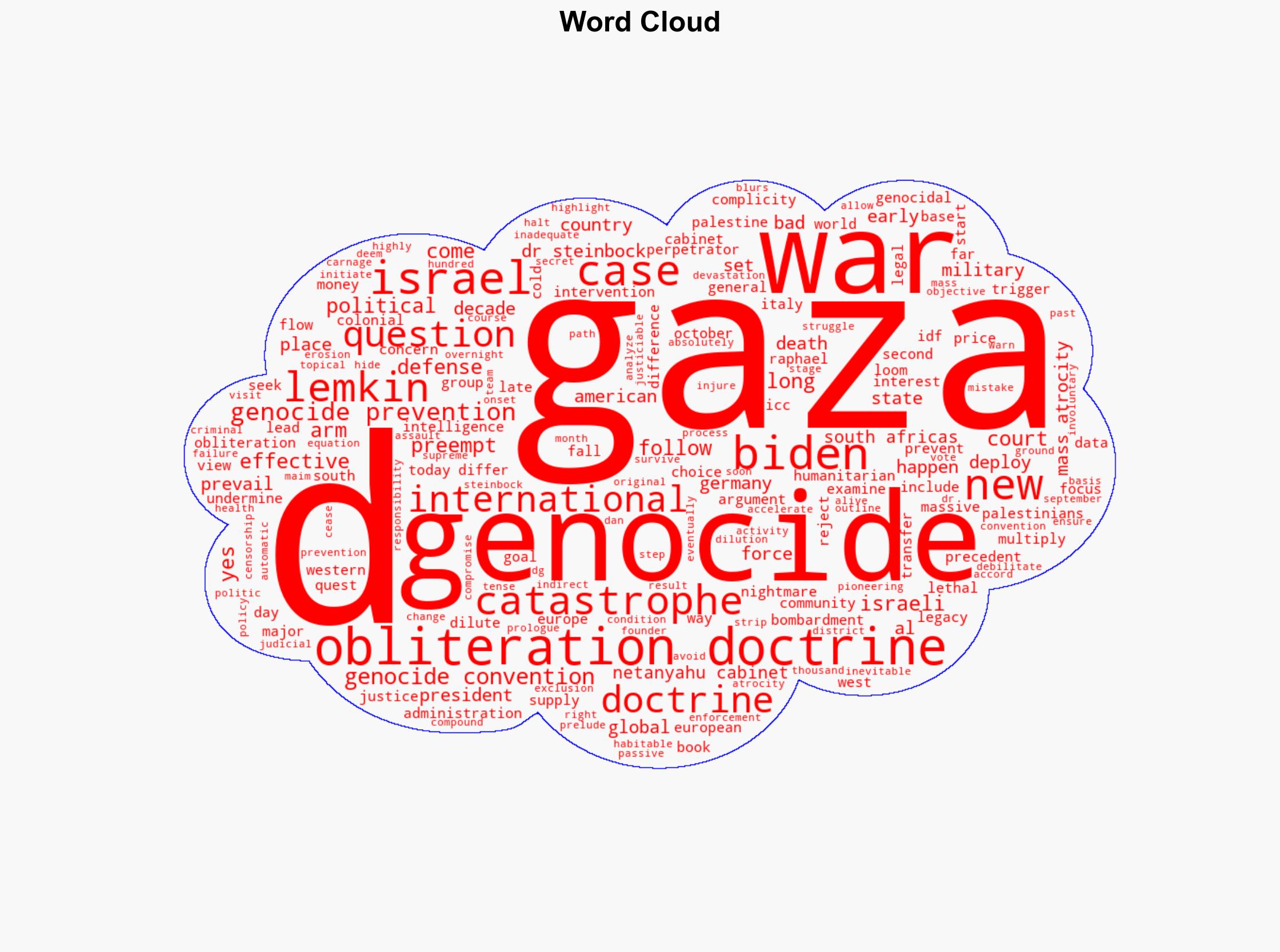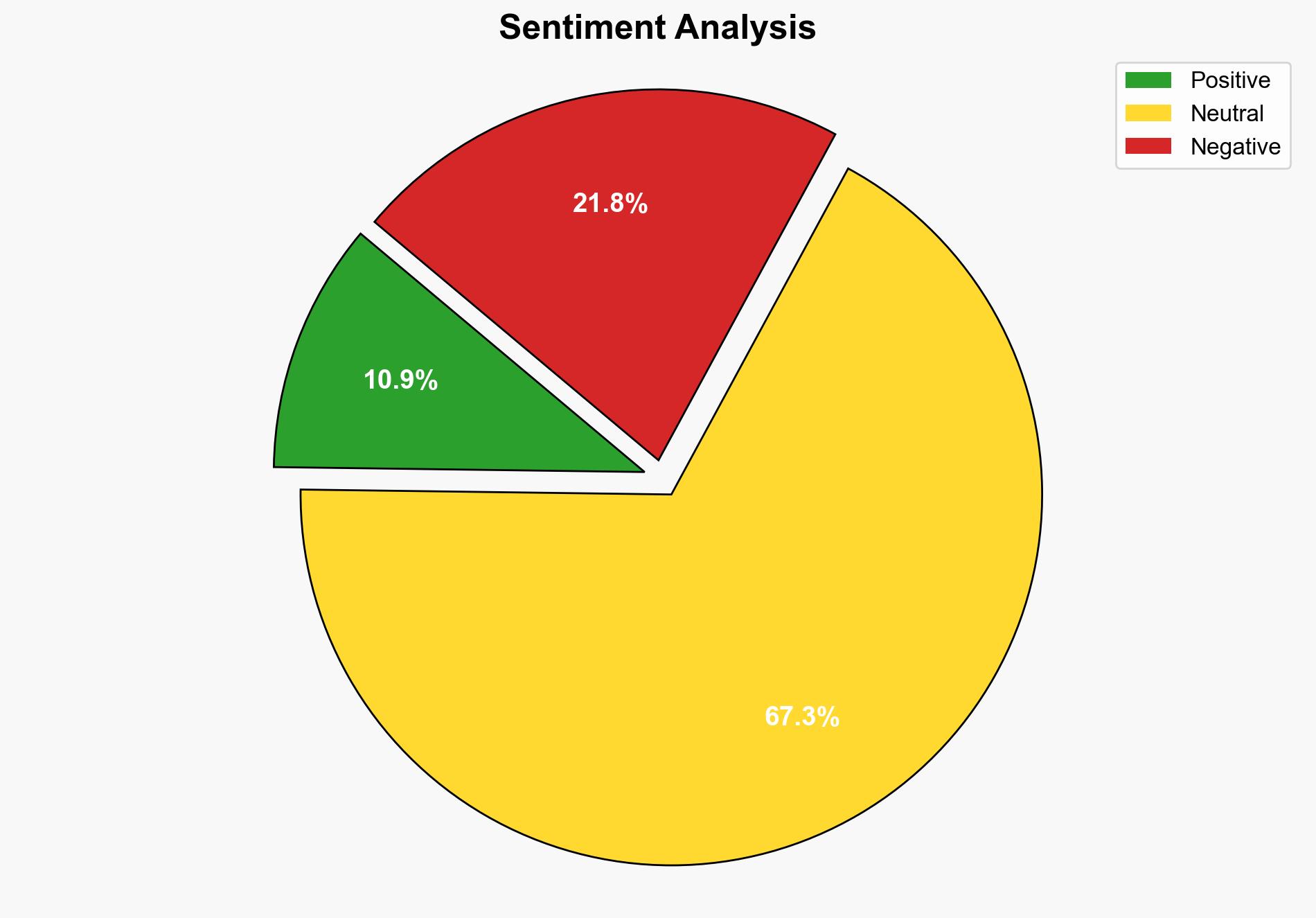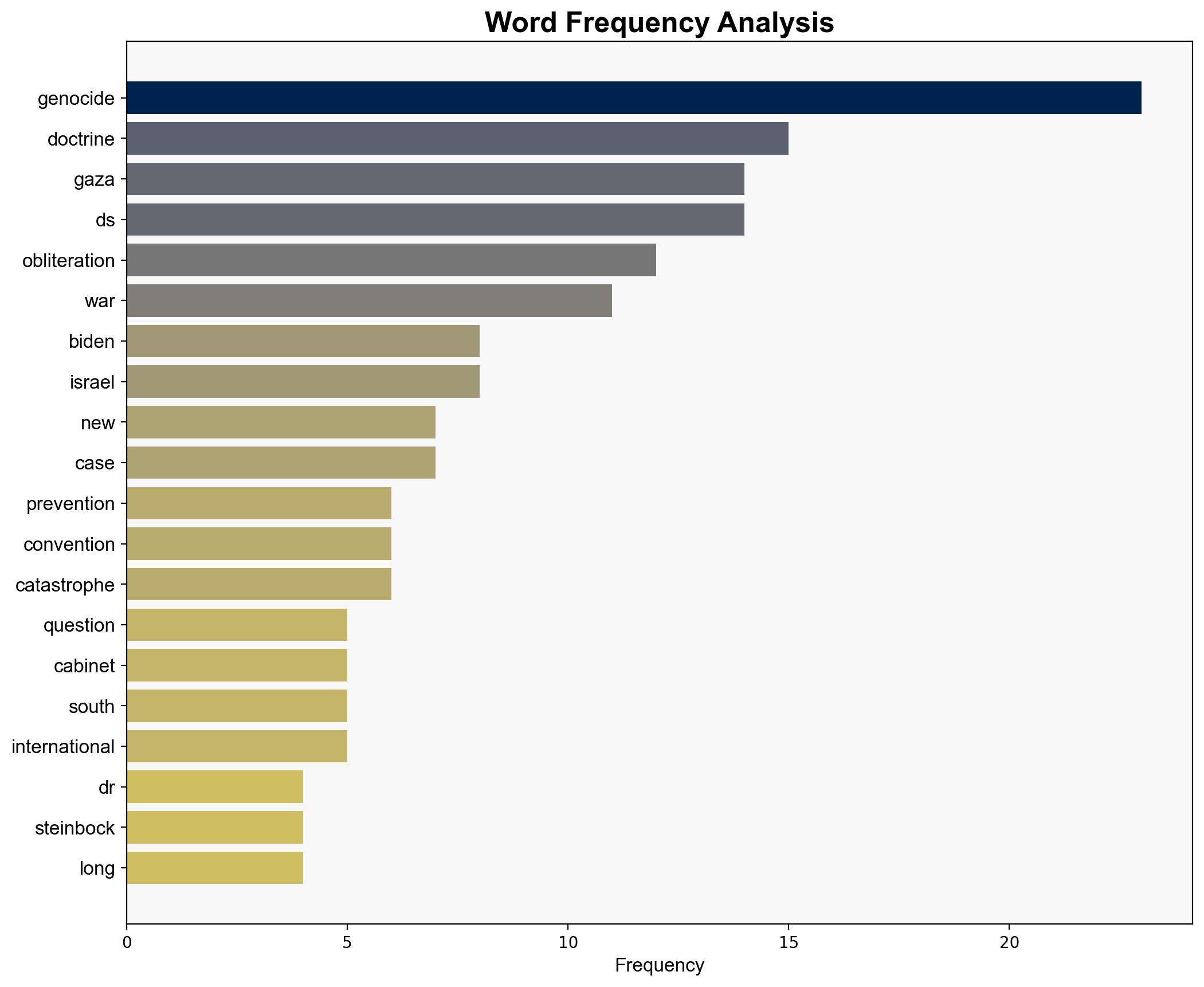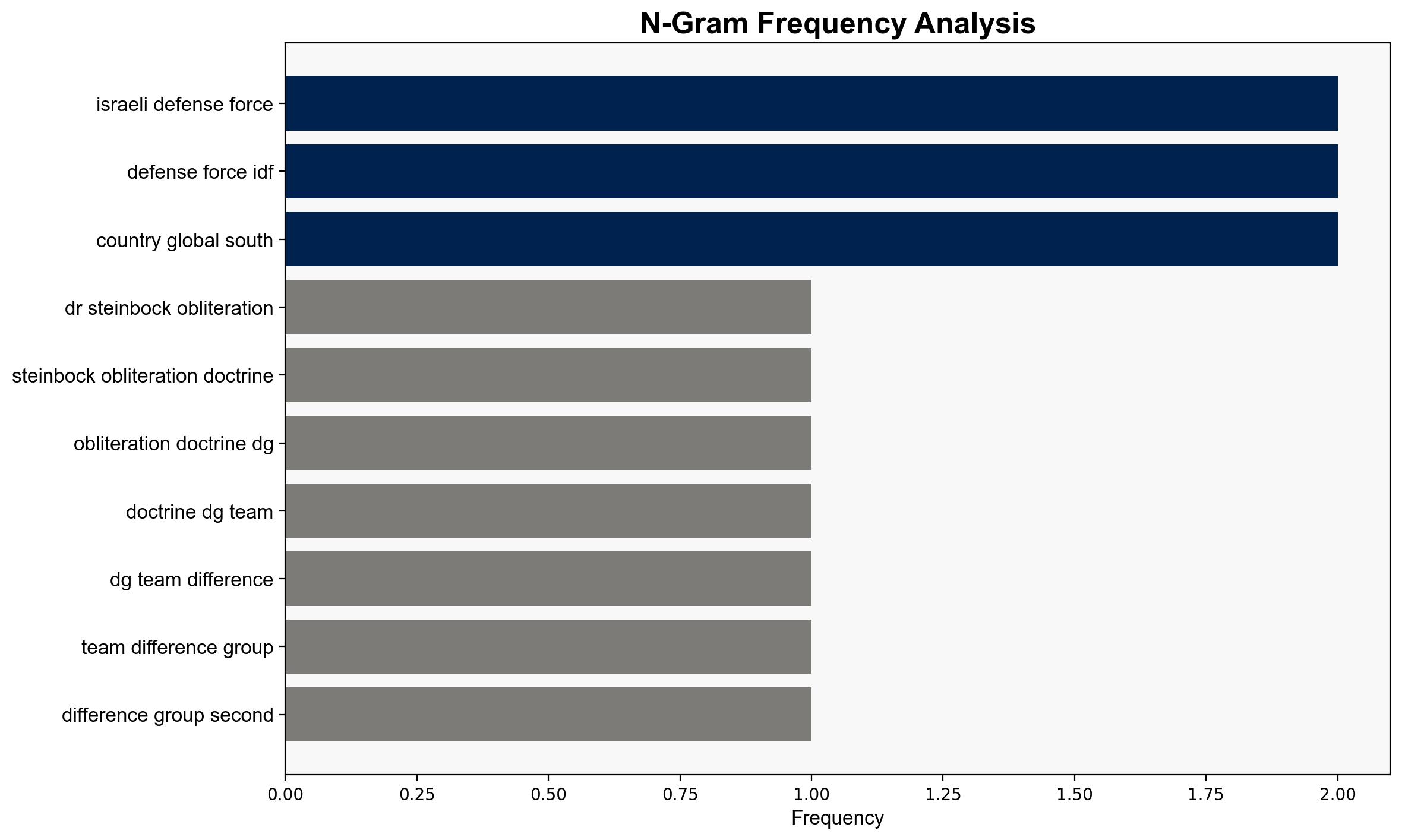The Wests Long Struggle Against Genocide Prevention – Juancole.com
Published on: 2025-08-18
Intelligence Report: The Wests Long Struggle Against Genocide Prevention – Juancole.com
1. BLUF (Bottom Line Up Front)
The analysis suggests a high likelihood that geopolitical interests and economic incentives significantly influence the West’s inconsistent approach to genocide prevention, particularly in the context of the Israeli-Palestinian conflict. The most supported hypothesis indicates that strategic and economic considerations override humanitarian concerns. It is recommended to increase transparency in arms trade and enhance international legal frameworks to ensure accountability. Confidence level: High.
2. Competing Hypotheses
1. **Hypothesis 1**: The West’s failure in genocide prevention is primarily due to geopolitical and economic interests that prioritize strategic alliances and arms trade over humanitarian obligations.
2. **Hypothesis 2**: The West’s inadequate response is due to bureaucratic inertia and legal complexities that hinder timely and effective intervention, rather than deliberate prioritization of other interests.
Using the Analysis of Competing Hypotheses (ACH) 2.0, Hypothesis 1 is better supported by the evidence, particularly the emphasis on arms transfers and economic ties with Israel, as well as the political and legal maneuvers that dilute international accountability.
3. Key Assumptions and Red Flags
– **Assumptions**: Hypothesis 1 assumes that economic and strategic interests are the primary drivers of policy decisions. Hypothesis 2 assumes that legal and bureaucratic challenges are the main obstacles.
– **Red Flags**: The narrative may overlook other potential motivations, such as ideological alignments or domestic political pressures. There is also a lack of direct evidence linking specific policy decisions to economic incentives.
– **Blind Spots**: The analysis does not fully explore the role of non-state actors or the influence of public opinion on policy decisions.
4. Implications and Strategic Risks
The continuation of current policies could exacerbate regional instability, increase anti-Western sentiment, and potentially lead to further humanitarian crises. Economic dependencies on arms trade may limit diplomatic flexibility and undermine international credibility. There is also a risk of escalating tensions leading to broader conflicts involving regional and global powers.
5. Recommendations and Outlook
- Enhance transparency in arms trade agreements and enforce stricter compliance with international humanitarian laws.
- Strengthen international legal frameworks to hold accountable those responsible for genocide and mass atrocities.
- Scenario-based projections:
- Best Case: Increased international cooperation leads to effective genocide prevention and resolution of the Israeli-Palestinian conflict.
- Worst Case: Escalation of conflict results in widespread regional instability and humanitarian disaster.
- Most Likely: Continued geopolitical maneuvering with sporadic humanitarian interventions, maintaining the status quo.
6. Key Individuals and Entities
– Dr. Dan Steinbock
– President Joe Biden
– Prime Minister Benjamin Netanyahu
– Ursula von der Leyen
7. Thematic Tags
national security threats, geopolitical strategy, arms trade, humanitarian intervention




